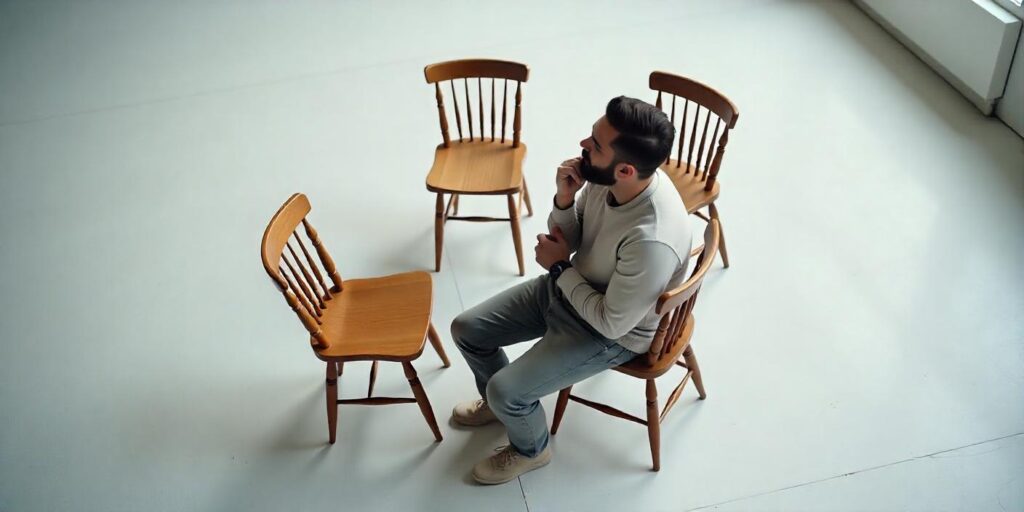The prodigal son, the forbearing and forgiving father, the loyal, self-righteous older brother… why does Jesus use this story with his critics? Why doesn’t he simply tell them that they’re wrong and that they should change their indignant and judgmental attitudes? Wouldn’t it have been more direct and maybe efficient? What is Jesus up to?

Throughout the history of the Scriptures, parables were used to convey profound truths in simple terms, to prompt realization and recognition in a person about their blind spots. The prophet Nathan once did this with King David, telling him a story about a shocking injustice in order to help the King come to his senses about the crime he had committed in order to take Bathsheba. Often, the storyteller has an awareness or knowledge of the audience that they do not have of themselves, and so through the use of dramatic irony, the storyteller can shed light on blind spots in their morals and motivations, and on issues of character.
In this story, we know that Jesus is trying to help the law abiding religious authorities understand that his relationship with public sinners is an expression of God’s universal and unconditional love. He wants them to come to the realization that their hearts are as distant from God’s love as both the prodigal son, who runs away with his share of the father’s fortune, and the elder brother, who stands apart from the celebration, and who with envy and resentment, refuses to accept the actions of both his little brother and his father. We know that unfortunately, the religious authorities were blind due to their pride, their presumption, and their desire to maintain the current order- so much so that the story wasn’t potent enough to prompt their conversion. Tragically, they eventually not only reject, but arrange for the execution of Jesus.
What do we make of this story? How do we relate to each of these characters? And what value might there be for us as leaders to ponder, as we sometimes find ourselves judging or envying others?
A wise spiritual director once invited me to contemplate this story, and to consider how I might discover each of these three characters within myself. In my immaturity, I wanted to see myself in the figure of the magnanimous father- always looking past the hurtful actions of others, taking the initiative to forgive, and loving everyone. But after living with me for several years, he could see that while I was attached to this idealized self-image, that in fact, I had many blind spots. He could see that my independent streak was often self-centered and selfish, indifferent to the impact of my actions on others. He could also see that at times I had an arrogant sense of superiority, and judged my brothers harshly. Fortunately, while he had these insights into my flawed character, he also loved me despite those imperfections and wanted for me to mature in self-awareness and inner freedom.
In my contemplation of this story, I began to discover in myself how the people I was most critical of, or the ones I tended to envy, were like mirrors of parts of myself that I disowned or was unaware of. I began to see how the younger son’s actions weren’t so different from my own when I left home for college, and pushed away from my family. And I saw myself in the older brother, who was stuck in his resentment and had become hard hearted toward his errant little brother.
How was this helpful? To begin with, I grew in self awareness of these blind spots, these unconscious corners of myself where I was out of touch of the truth of myself, and the ways that this ego-flattering, self identification with the “hero” of the story could be so problematic for my relationships with others. I began to realize more clearly how my judgments of others were often rooted in biases and assumptions that set me apart from and above others. Though in fact, this dynamic can work the other way as well, if we tend to put others before or above ourselves, belittling our self worth, and envying others for their gifts.
Does this make sense to you? These are very human dynamics, but require attention to the subtle ways in which our self awareness is limited and the ways that blind spots can affect our perceptions and judgments of others. Perhaps you have had the grace of finding each of these characters within yourself?
This Lent, we are called to continue our path of conversion, growth in spiritual freedom, and deepening in our humble dependence on God. May we proceed with open minds, hearts, and wills to respond to God’s loving call to greater maturity in our discipleship of Jesus.
With you on the road,




